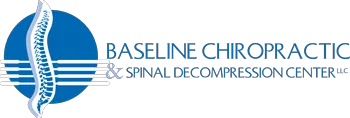
The theory that an irritated spine may contribute to colic is supported by the frequent improvement in symptoms with gentle chiropractic adjustments. Because the birthing process is very stressful on the neck of a newborn, it is very common for there to be several subluxations in the neck and back that can irritate the tiny and delicate nervous system. It has also been observed that babies with colic seem to need more attention and are more sensitive to the things around them than other babies - again indicating that there are some neurological differences.
Both the mother's and the baby's diet can be huge factors in the development of colic. One of the biggest offenders is cow's milk. Babies should not have cow's milk, or dairy in any form for that matter, until they are at least two or three years old. Cow's milk contains the sugar lactose which many newborn babies cannot digest very well, not to mention that cow's milk contains many proteins that are not good for an infant's digestive system.
Another potential dietary contributor to colic is the mother's diet while breastfeeding. Women who breast feed should stay away from spicy foods, alcohol and tobacco, as well as to avoid eating too much of any one particular food. A semi-bland, high-protein diet that excludes dairy is probably best - at least during the first three or four months of breastfeeding.
If your baby suffers from colic, there are a few things that you can do to help:
- Seek regular chiropractic care, especially during the first four months.
- Place a warm water bottle on your baby's stomach.
- Rock your baby in a rocking chair or cradle.
- Give your baby a warm bath.
- Gently rub your baby's stomach.
- Go for a drive with your baby in the car seat.
- Feed your baby more often with less food at each feeding.
- If you feed your baby formula, avoid soy or dairy-based formulas.
